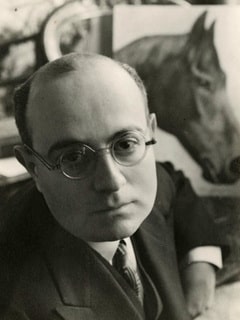
Just a few words on Michel Foucault’s understanding of power and his first volume of the History of Sexuality before I write a post on the second, The Use of Pleasure (1984).
According to his celebrated Two Lectures (1976) political theory has traditionally concerned itself with questions of sovereignty, power, and rights. In this model the sovereign-state has been treated as the source and repository of power. As it has the monopoly over the means of (legitimate) violence, in the final analysis its subjects obey under the threat of the use of officially sanctioned coercion. Here, the rights of the citizen are conceived as checks on the power of the sovereign, to prevent it from arbitrarily exercising its power.
Foucault however thinks this is too rigid, too narrow. His microphysics of power is very different because his concern is with a politics of how masses of human bodies are regulated, leading him to ask radical questions about the conventional model of power.
Power for Foucault is bound up with “knowing” its object so it can be transformed into its subject. It is complex in its scope and specific in its operation. Because of its fluid-like character and ability to generate so many different kinds of subjects, power cannot reflect the will of the state, the operation of the economy, or any idea of human nature. In fact Foucault reaches a radically opposed conclusion: notions of an essential nature, rights, or bourgeois interests are effects of power.
Foucault’s method (what he, following Nietzsche calls a genealogical approach) is to study power from the bottom up, to trace the lines of descent of political technologies of the body to illustrate the emergence of particular kinds of subjects and the passing of others.
This is Foucault’s concern in his unfinished project, The History of Sexuality (1976-84). In the first volume his objective is
As the problematic of population management grew, the 19th century saw an explosion of discourses around sex. The centrality of the married couple in the old discursive regime was repositioned as the unspoken norm of sexual behaviour. In contrast all other behaviours that didn’t conform became marked by the discourses of sexuality. The ‘margins’ of sex were labelled and regulated by seizing hold of the body and learning (constructing) its sexual truths. For example the discovery of ‘the homosexual’ was the same moment of its invention. Prior to this moment, familial, legislative and religious practices proscribed same-sex relations, but it was only in the Victorian era when the person who engaged in such acts was positioned as a homosexual subject.
In this move from sex acts to sexuality-as-identity, the metaphor of ‘the confessional’ as a technology to extract/produce the truth of bodies assumes central importance. This “scientific” practice was characterised by five devices.
1. The confession was wedded to scientific methods of data collection and psychological techniques.
2. The belief that sex is the root of all psychological maladies and that talking over one’s sexual behaviour to an expert was essential if the problems were to be overcome.
3. Every act committed and each sentence uttered is potentially symptomatic, rendering the interpretation of the confession problematic and decipherable only by especially trained experts.
4. The aim of providing useful knowledge that could fit the received paradigm shaped the discourse between analyst and analysand. Together they produce a truth.
5. To provide raw material for knowledge. Any cathartic effects are ultimately secondary.
In sum, these devices produce sexuality as a viable object for scientific investigation, and feed the object and its associated knowledges back into the ensemble of power. Truth is not uncovered by the operation of knowledge; it is an effect of power.
As socialists this understanding of power has a number of implications for our political practice, but that will have to be left for another time. What does come out from Foucault’s genealogies, (including Discipline and Punish (1975), his immediately preceding work on the birth of the prison) is the utterly powerless position of the subject. In both these books the body is subjected to so many disciplining technologies that it appears to passively accept them. This is strange because Foucault makes it quite clear that power begets resistance. Without resistance or the potential for resistance, we cannot speak of power. Unfortunately resistance is merely asserted as an essential property of his approach and is not explored with reference to either punishment or sexuality. Perhaps this lacuna in his thought partially explains why there was an eight year gap between the publishing of the first and second volume, because the change in emphasis is striking. The passive bodies of the Introduction give way to matters of individual ethics and management of self in The Use of Pleasure. A post discussing the main aspects and emphases of the latter will appear in the next few days.
According to his celebrated Two Lectures (1976) political theory has traditionally concerned itself with questions of sovereignty, power, and rights. In this model the sovereign-state has been treated as the source and repository of power. As it has the monopoly over the means of (legitimate) violence, in the final analysis its subjects obey under the threat of the use of officially sanctioned coercion. Here, the rights of the citizen are conceived as checks on the power of the sovereign, to prevent it from arbitrarily exercising its power.
Foucault however thinks this is too rigid, too narrow. His microphysics of power is very different because his concern is with a politics of how masses of human bodies are regulated, leading him to ask radical questions about the conventional model of power.
There are manifold relations of power which permeate, characterise, and constitute the social body and these relations of power cannot themselves be established, consolidated or implemented without the production, accumulation, circulation and functioning of a discourse. There can be no exercise of power without a certain economy of discourses of truth which operates through and on the basis of this association. We are subjected to the production of truth through power and we cannot exercise power except through the production of truth. (Power/Knowledge (1980), p.93)Take the contemporary understanding of sexuality for example. Whether we’re gay, straight or bi, sexuality is something that defines who we are. This isn’t because it’s an expression of an essential nature. It just so happens to be an effect of how human bodies have come to be regulated over the last couple of centuries. As we’ll see in a future post, an ancient Greek freeman who preferred sex with young men didn’t have any conception of being different to other freemen who preferred sex with women, and neither was he seen as different. Set this against our modern understanding of sex. Who we are attracted to and who we sleep with defines our being in ways incomprehensible to the ancient Greeks.
Power for Foucault is bound up with “knowing” its object so it can be transformed into its subject. It is complex in its scope and specific in its operation. Because of its fluid-like character and ability to generate so many different kinds of subjects, power cannot reflect the will of the state, the operation of the economy, or any idea of human nature. In fact Foucault reaches a radically opposed conclusion: notions of an essential nature, rights, or bourgeois interests are effects of power.
Foucault’s method (what he, following Nietzsche calls a genealogical approach) is to study power from the bottom up, to trace the lines of descent of political technologies of the body to illustrate the emergence of particular kinds of subjects and the passing of others.
This is Foucault’s concern in his unfinished project, The History of Sexuality (1976-84). In the first volume his objective is
to define the regime of power-knowledge-pleasure that sustains the discourse on human sexuality in our part of the world. The central issue is … to account for the fact that it is spoken about, to discover who does the speaking, the positions and viewpoints from which they speak, the institutions which prompt people to speak about it and which store and distribute the things that are said. (History of Sexuality: An Introduction, p.11)Foucault’s discussion begins with the immediate pre-modern era. He argues that the regulation of sexual practices were the responsibility of ecclesiastical and legislative discourses and institutions. The married couple was located as the primary site of sexual behaviour. Sex was about procreation and marriage functioned as a reproductive pact between allied families. Sex outside of marriage was outside the purview of sexual regulation in the case of infants, and punished if it took place between men. This pattern of regulation underwent a significant mutation at the beginning of the 18th century, linked to the emergence of ‘population’ as an economic and political problem that had to be managed. It was in the interest of emerging nation-states had to know about sex in terms of its citizen’s capacity to reproduce and ability to be disciplined in all matters sexual.
As the problematic of population management grew, the 19th century saw an explosion of discourses around sex. The centrality of the married couple in the old discursive regime was repositioned as the unspoken norm of sexual behaviour. In contrast all other behaviours that didn’t conform became marked by the discourses of sexuality. The ‘margins’ of sex were labelled and regulated by seizing hold of the body and learning (constructing) its sexual truths. For example the discovery of ‘the homosexual’ was the same moment of its invention. Prior to this moment, familial, legislative and religious practices proscribed same-sex relations, but it was only in the Victorian era when the person who engaged in such acts was positioned as a homosexual subject.
In this move from sex acts to sexuality-as-identity, the metaphor of ‘the confessional’ as a technology to extract/produce the truth of bodies assumes central importance. This “scientific” practice was characterised by five devices.
1. The confession was wedded to scientific methods of data collection and psychological techniques.
2. The belief that sex is the root of all psychological maladies and that talking over one’s sexual behaviour to an expert was essential if the problems were to be overcome.
3. Every act committed and each sentence uttered is potentially symptomatic, rendering the interpretation of the confession problematic and decipherable only by especially trained experts.
4. The aim of providing useful knowledge that could fit the received paradigm shaped the discourse between analyst and analysand. Together they produce a truth.
5. To provide raw material for knowledge. Any cathartic effects are ultimately secondary.
In sum, these devices produce sexuality as a viable object for scientific investigation, and feed the object and its associated knowledges back into the ensemble of power. Truth is not uncovered by the operation of knowledge; it is an effect of power.
As socialists this understanding of power has a number of implications for our political practice, but that will have to be left for another time. What does come out from Foucault’s genealogies, (including Discipline and Punish (1975), his immediately preceding work on the birth of the prison) is the utterly powerless position of the subject. In both these books the body is subjected to so many disciplining technologies that it appears to passively accept them. This is strange because Foucault makes it quite clear that power begets resistance. Without resistance or the potential for resistance, we cannot speak of power. Unfortunately resistance is merely asserted as an essential property of his approach and is not explored with reference to either punishment or sexuality. Perhaps this lacuna in his thought partially explains why there was an eight year gap between the publishing of the first and second volume, because the change in emphasis is striking. The passive bodies of the Introduction give way to matters of individual ethics and management of self in The Use of Pleasure. A post discussing the main aspects and emphases of the latter will appear in the next few days.





